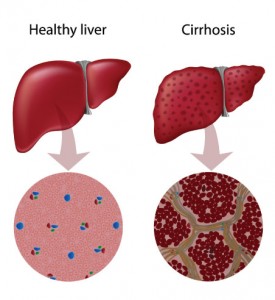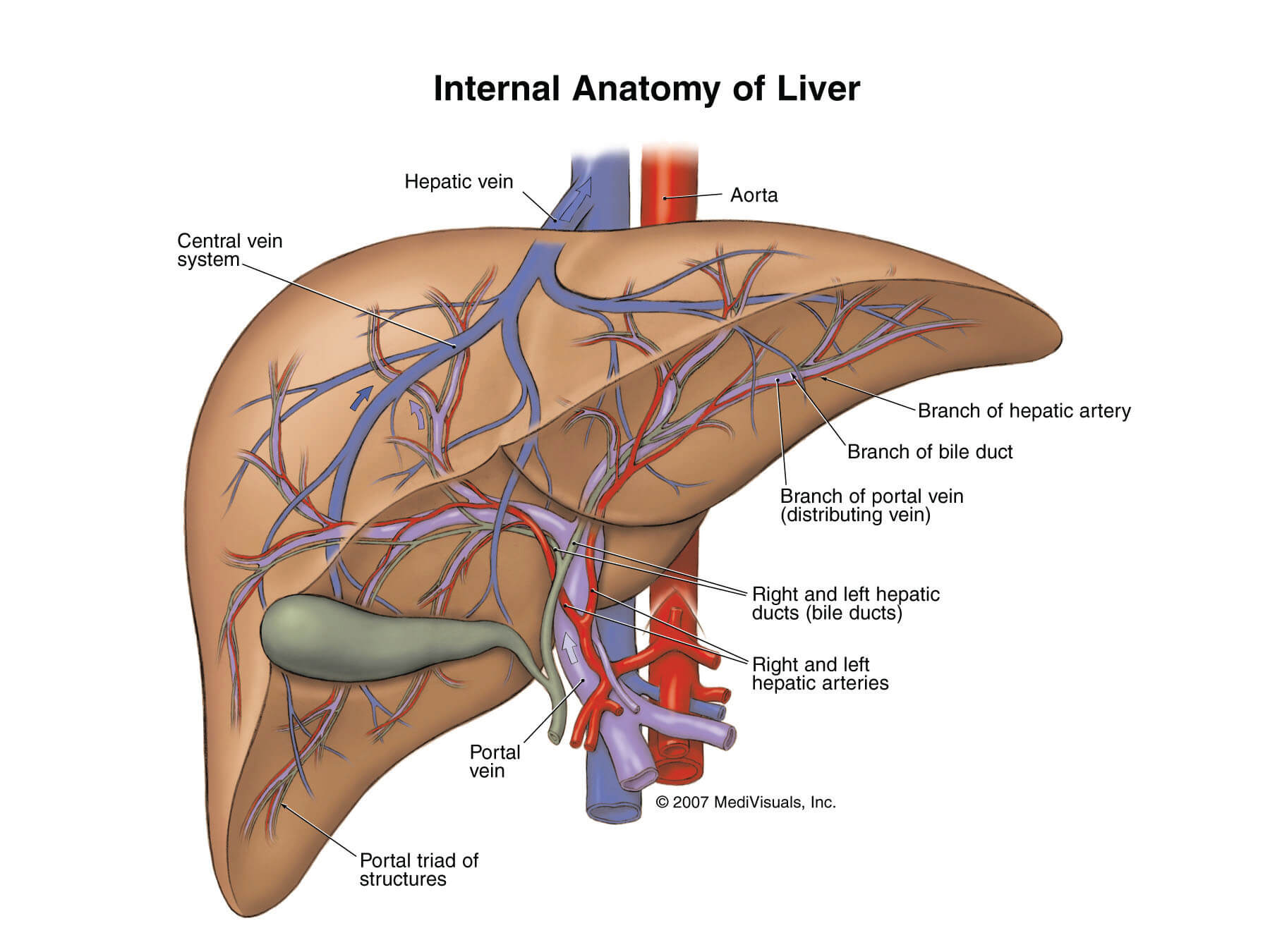The Liver
The liver is the largest gland in the human body and is located in the right upper abdomen.
It weighs approximately 1.5kg or about 2.2% of your total body weight.
The liver’s function can be reduced by chronic diseases such as hepatitis or by toxic substances (e.g. alcohol) which can cause fatty liver and scarring.
The liver has an essential role in:
- digesting nutrients
- detoxification
- production of blood proteins
- immune response
Which Diseases Affect The Liver?
Several diseases can affect the function and capacity of the liver. These include:
- Fatty liver – a yellow discoloration of the liver resulting from fat deposits within the liver cells, commonly caused by heavy drinking, certain drugs, toxins and metabolic disorders
- Hepatitis – inflammation of the liver which can be caused by toxic substances (excessive alcohol consumption), hepatitis viruses (A, B and C), fatty liver or an autoimmune disease
- Cirrhosis – a disease in which normal liver cells are damaged and replaced with abnormal cells



